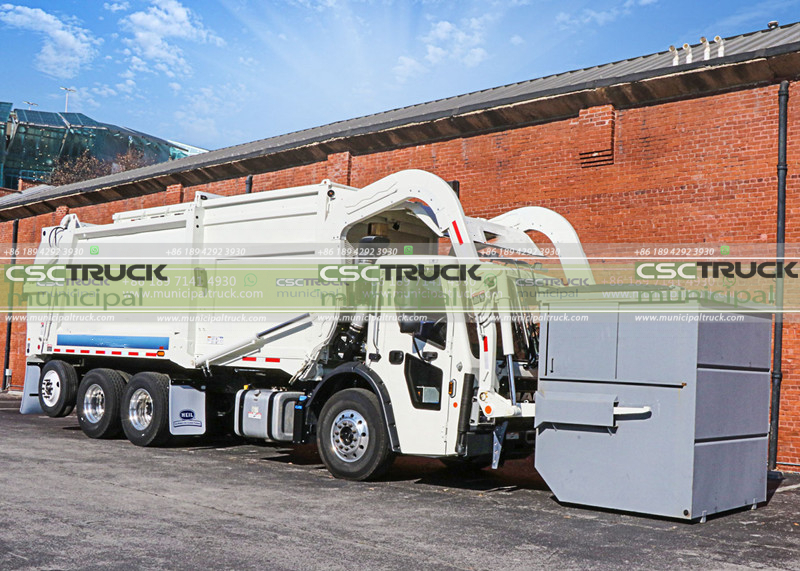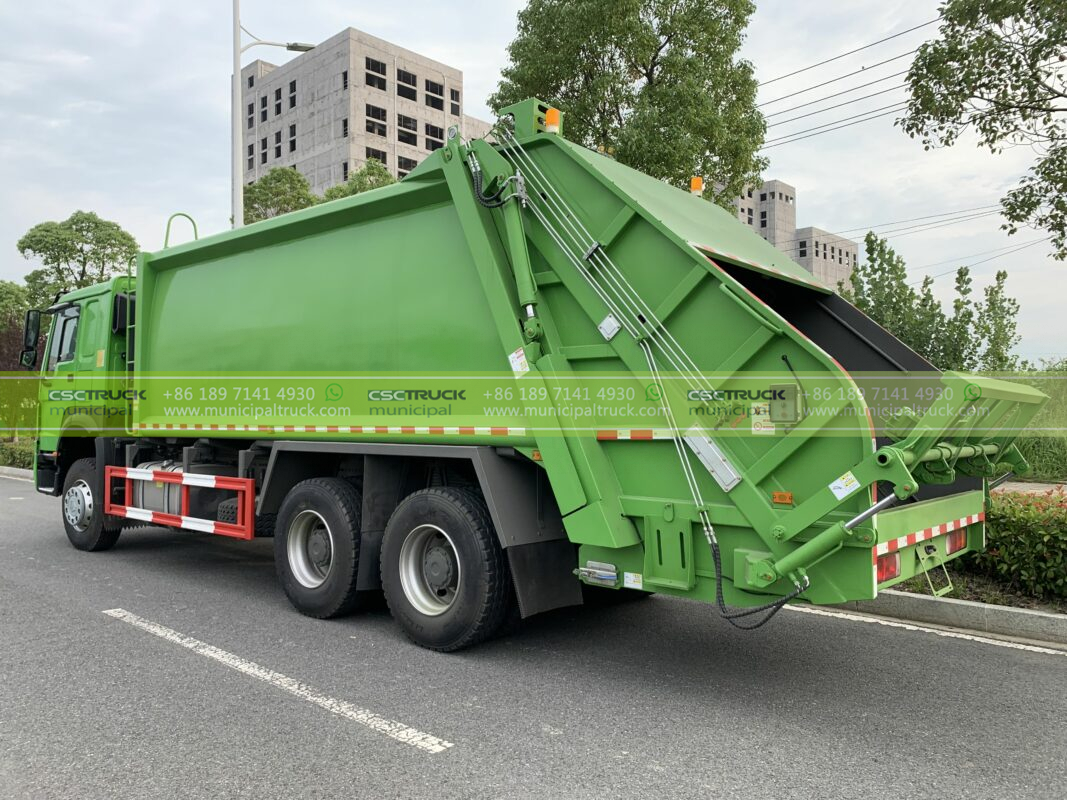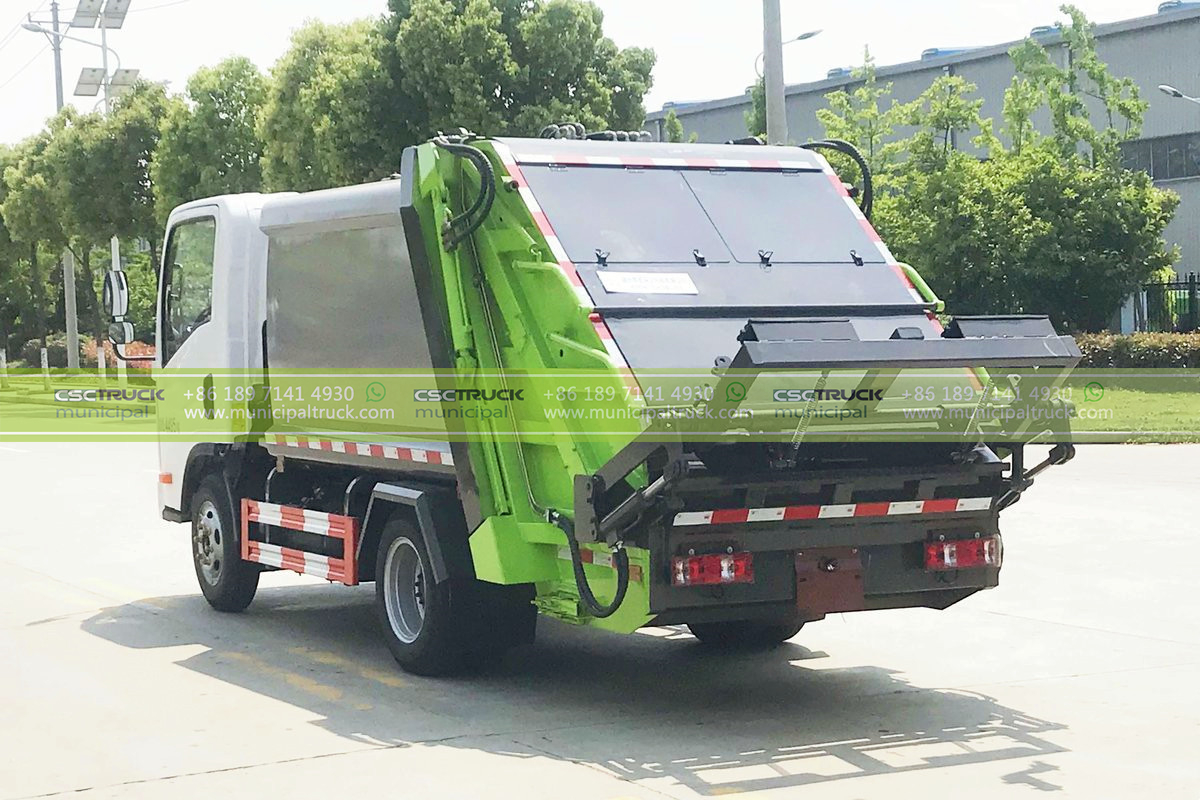Garbage trucks are more than just vehicles; they are marvels of engineering designed to handle one of society’s most essential tasks—waste management. Behind their rugged exteriors lies a world of advanced technology and innovative systems that ensure efficient and safe waste collection. In this blog post, we take a deep dive into the science behind garbage truck technology, exploring the mechanics, innovations, and applications that make these vehicles indispensable to modern urban life.
The Mechanics of Garbage Trucks: How They Work
At the heart of every garbage truck is a complex system of mechanical and hydraulic components that work together to collect, compact, and transport waste. These systems are designed to handle large volumes of waste efficiently, ensuring that urban areas remain clean and functional.
Hydraulic Systems for Waste Compaction
One of the key features of a garbage truck is its hydraulic system, which powers the compaction process. Hydraulic rams compress waste, reducing its volume and maximizing the storage capacity of the truck. This process not only improves efficiency but also minimizes the number of trips required to disposal sites, reducing fuel consumption and emissions.
Automated Loading Mechanisms
Many modern garbage trucks are equipped with automated loading mechanisms, such as mechanical arms or lift systems, that reduce the need for manual labor. These systems improve safety and efficiency, allowing operators to collect waste quickly and with minimal physical strain.
The garbage truck combines advanced mechanical systems and hydraulic technology to ensure efficient and reliable waste collection.
Innovations in Garbage Truck Design
Over the years, garbage truck technology has evolved significantly, incorporating innovations that enhance performance, safety, and sustainability. These advancements have transformed garbage trucks into highly specialized vehicles capable of handling diverse waste management challenges.
Smart Waste Management Systems
Some garbage trucks are now equipped with smart waste management systems that use sensors and data analytics to optimize collection routes and schedules. These systems reduce operational costs and improve efficiency by ensuring that trucks only visit locations where waste bins are full.
Eco-Friendly Features
To address environmental concerns, many garbage trucks are designed with eco-friendly features, such as hybrid or electric powertrains. These vehicles reduce emissions and fuel consumption, contributing to cleaner and more sustainable urban environments.
The garbage truck has evolved into a high-tech vehicle, incorporating innovations that improve efficiency, safety, and environmental sustainability.
Types of Garbage Trucks and Their Applications
There are several types of garbage trucks, each designed for specific waste collection tasks and environments. Understanding the differences between these vehicles can help municipalities and waste management companies choose the right equipment for their needs.
Rear Loader Garbage Trucks
Rear loader garbage trucks are equipped with hydraulic compaction systems and rear loading mechanisms, making them ideal for residential waste collection. These vehicles are commonly used in urban and suburban areas, where efficiency and reliability are top priorities.
Front Loader Garbage Trucks
Front loader garbage trucks are designed to handle large commercial dumpsters. They feature hydraulic arms that lift and empty dumpsters into the storage compartment, where the waste is compacted. These vehicles are ideal for high-volume waste collection in commercial and industrial areas.
Side Loader Garbage Trucks
Side loader garbage trucks are equipped with mechanical arms that lift and empty waste bins from the side. These vehicles are often used in residential areas, where they provide an efficient and safe method for waste collection.
The garbage truck comes in various types, each offering unique features and benefits for different waste collection applications.
The Role of Garbage Trucks in Urban Infrastructure
Garbage trucks play a critical role in maintaining the cleanliness and functionality of urban infrastructure. By collecting and transporting waste, these vehicles help prevent pollution, reduce health risks, and ensure that cities remain livable for residents and visitors alike.
Integration with Other Municipal Vehicles
In many cities, garbage trucks are integrated into broader municipal fleets, working alongside sewer trucks and sweeper trucks to provide comprehensive waste management solutions. This integration ensures that urban areas can address multiple sanitation challenges efficiently and effectively.
Supporting Public Health and Safety
By removing waste from streets and neighborhoods, garbage trucks help reduce the risk of disease and contamination. This is particularly important in densely populated urban areas, where improper waste management can lead to serious health issues.
The garbage truck is a cornerstone of urban infrastructure, ensuring that cities remain clean, safe, and functional.
The Future of Garbage Truck Technology
As technology continues to advance, the future of garbage truck technology looks promising. Innovations in automation, artificial intelligence, and renewable energy are expected to transform waste management systems, making them more efficient, sustainable, and cost-effective.
Autonomous Garbage Trucks
Autonomous garbage trucks are being developed to operate without human intervention, using sensors and AI to navigate streets and collect waste. These vehicles have the potential to revolutionize waste management by reducing labor costs and improving efficiency.
Renewable Energy Integration
The integration of renewable energy sources, such as solar panels and hydrogen fuel cells, is expected to make garbage trucks more environmentally friendly. These innovations will reduce emissions and contribute to the development of sustainable urban environments.
The garbage truck is poised to become a high-tech, eco-friendly vehicle, driving innovation and sustainability in waste management systems.
With their advanced technology, versatile applications, and critical role in urban infrastructure, garbage trucks are a vital component of modern waste management. By understanding the science behind these vehicles, we can appreciate their importance and support the development of innovative solutions for a cleaner, safer, and more sustainable future.









